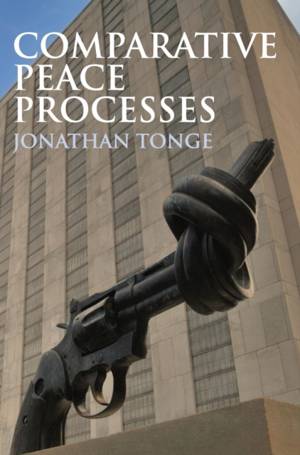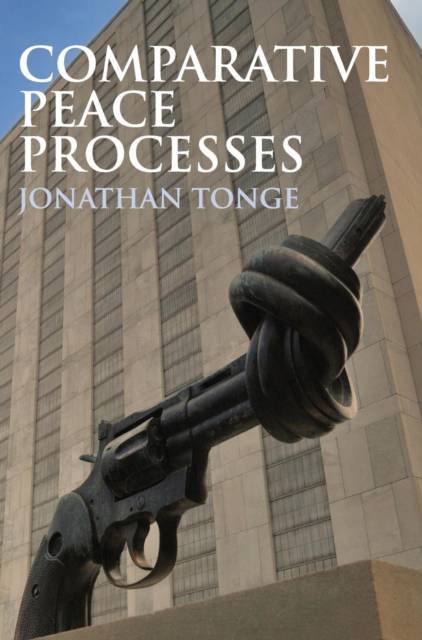
Bedankt voor het vertrouwen het afgelopen jaar! Om jou te bedanken bieden we GRATIS verzending (in België) aan op alles gedurende de hele maand januari.
- Afhalen na 1 uur in een winkel met voorraad
- In januari gratis thuislevering in België
- Ruim aanbod met 7 miljoen producten
Bedankt voor het vertrouwen het afgelopen jaar! Om jou te bedanken bieden we GRATIS verzending (in België) aan op alles gedurende de hele maand januari.
- Afhalen na 1 uur in een winkel met voorraad
- In januari gratis thuislevering in België
- Ruim aanbod met 7 miljoen producten
Zoeken
Omschrijving
Choice Outstanding Academic Title for 2015
The term �peace process� is now widely used to describe attempts to manage and resolve conflict. As the nature of conflict has changed, so the range of available tools for producing peace has grown. Alongside a plethora of political actions, there is now a greater international awareness of how peace can be brokered and policed. As a result, peace processes now extend well beyond the actuality of ceasefires and an absence of war to cover legacy issues of victims, truth and reconciliation.
This book expertly examines the practical application of solutions to conflict. The first part analyses various political means of conflict management, including consociational power-sharing, partition, federalism and devolution. The second explores the extent to which these political formulas have been applied - or ignored - in a wide range of conflicts including Bosnia-Herzegovina, Northern Ireland, Israel-Palestine, Lebanon, the Basque Region and Sri Lanka.
Comparative Peace Processes combines optimism with a realist approach to conflict management, acknowledging that the propensity of dominant states to engage in political experimentation is conditioned by the state of conflict. It will be a valuable resource for anyone interested in general theories of political possibilities in peace processes and the practical deployment of political ideas in conflict zones.
The term �peace process� is now widely used to describe attempts to manage and resolve conflict. As the nature of conflict has changed, so the range of available tools for producing peace has grown. Alongside a plethora of political actions, there is now a greater international awareness of how peace can be brokered and policed. As a result, peace processes now extend well beyond the actuality of ceasefires and an absence of war to cover legacy issues of victims, truth and reconciliation.
This book expertly examines the practical application of solutions to conflict. The first part analyses various political means of conflict management, including consociational power-sharing, partition, federalism and devolution. The second explores the extent to which these political formulas have been applied - or ignored - in a wide range of conflicts including Bosnia-Herzegovina, Northern Ireland, Israel-Palestine, Lebanon, the Basque Region and Sri Lanka.
Comparative Peace Processes combines optimism with a realist approach to conflict management, acknowledging that the propensity of dominant states to engage in political experimentation is conditioned by the state of conflict. It will be a valuable resource for anyone interested in general theories of political possibilities in peace processes and the practical deployment of political ideas in conflict zones.
Specificaties
Betrokkenen
- Auteur(s):
- Uitgeverij:
Inhoud
- Aantal bladzijden:
- 288
- Taal:
- Engels
Eigenschappen
- Productcode (EAN):
- 9780745642895
- Verschijningsdatum:
- 3/06/2014
- Uitvoering:
- Hardcover
- Formaat:
- Ongenaaid / garenloos gebonden
- Afmetingen:
- 170 mm x 246 mm
- Gewicht:
- 521 g

Alleen bij Standaard Boekhandel
+ 238 punten op je klantenkaart van Standaard Boekhandel
Beoordelingen
We publiceren alleen reviews die voldoen aan de voorwaarden voor reviews. Bekijk onze voorwaarden voor reviews.









